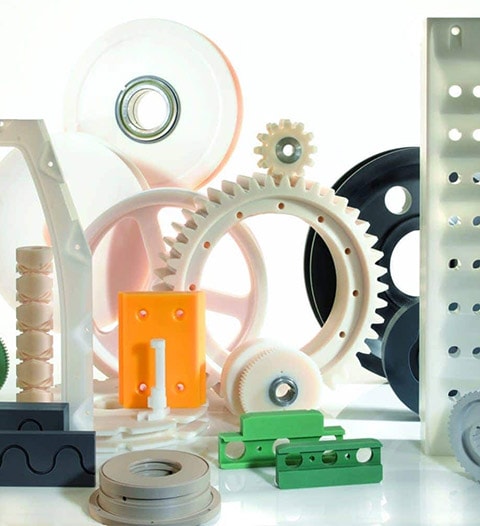
Engineering plastics are a form of polymer that are well known for their high mechanical strength, versatility, and ability to be melted and reformed into other shapes. For decades, engineers have seen plastics replace metal in applications where weight reduction, corrosion resistance or low coefficient of friction is needed to reduce wear on mating parts.
Plastics are lightweight so they are safer to maintain than steel and can reduce noise and vibration levels. Options exist to produce parts from fiber reinforced polymers as well as those that are self lubricating which can enhance the performance of plastics. These features help provide longer part life for the entire system, leading to cost savings for equipment manufacturers and end users.
For example, a significant reduction in the weight of sheaves and wear pads will increases the lifting capacity of cranes or aerial work platforms and may offer a reduction in power requirements. Additionally, the handling and assembly of these parts is made safer as most plastics are one seventh the weight of steel. Additionally, plastic materials cause very little wear on the contacted surface as seen where wire rope will last two to three times longer when plastic sheaves are used instead of steel. Scheduled maintenance for lubrication of parts is often reduced or eliminated completely when components are manufactured from plastics.

